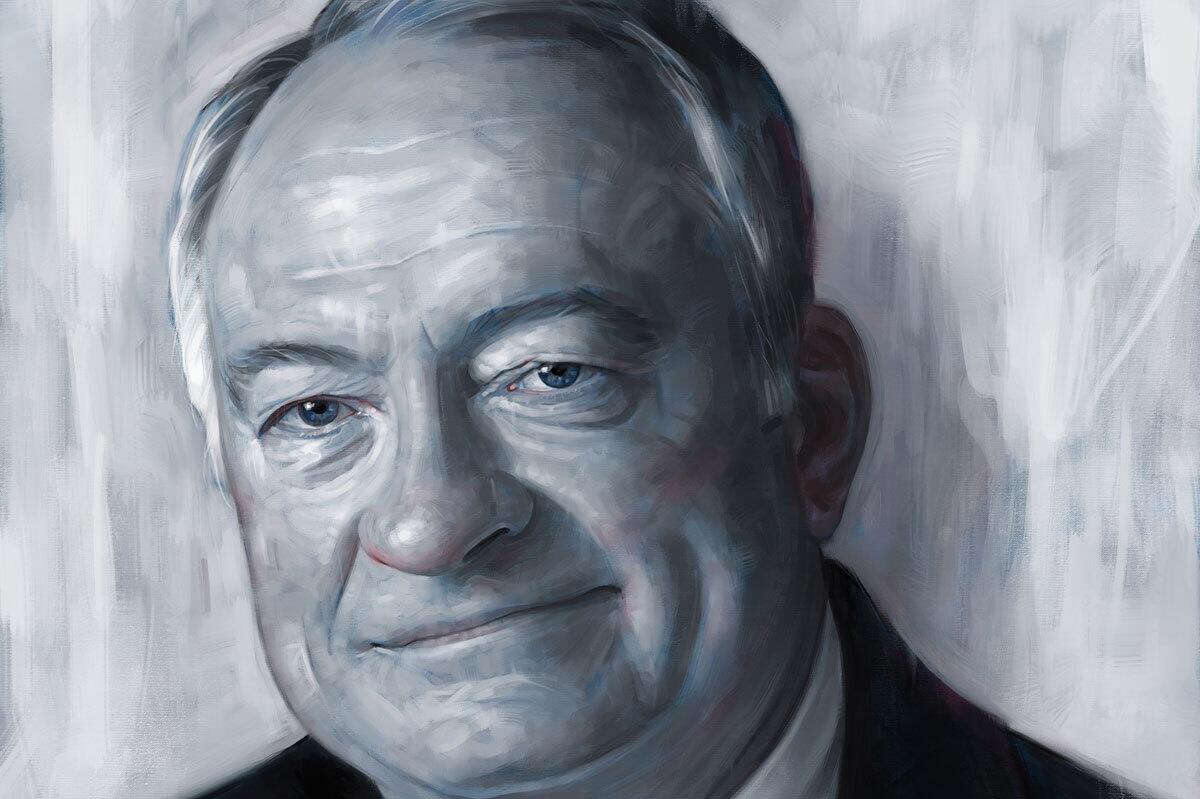Walk-off wisdom from Bill Dwyre

This is Bill Dwyreâs final column for The Times.
There are a million stories in the naked city, and Iâm not going to get to all of them. It sure has been fun trying.
Today is my last column for the Los Angeles Times. That was harder to type than I thought.
I am among dozens of departing journalists. It will be a slow trickle, starting now and ending around the first of the year.
It was our choice. For some, it was a severance package. For others, the reasons were personal. For me, it was just time.
There is one last story to tell. It is about a red-haired college grad who found a way to feed his family and fell in love with that way.
He learned how to edit stories, write headlines, make deadlines and get goose-bumpy every time something important happened in the world. His world was sports. Not as important, but no less goose-bumpy.
He always wanted to write, but his bosses wanted him behind a desk. The desk soon became a glass office. He didnât mind, even embraced it for a long time, 25 years at this paper. He hired the smartest people he could find, and loved being around them.
But he never forgot the feeling he had one day, back in Milwaukee, a stop along his way. He was so green he could hide in front of Jackâs beanstalk, but he talked his way into a chance to write an actual story.
He was assigned to a high school cross-country meet. There may be lower-profile news in sports, but youâd have to look long and hard.
He so badly wanted to write something that didnât belabor the obvious, a disease on many sports pages. But there wasnât anything. Teenage boys ran, some faster than others. Their coaches were either happy or unhappy. He saw no story. He had no hope.
And then, as if dropped from heaven, came a tiny figure climbing the final hill, struggling. His name was Torre Fricano, he was an undersized freshman at a high school named Messmer. He was so far behind in dead last that he was in danger of missing the team bus.
He collapsed across the finish line and was scooped up by a man the size and build of a big bear. He was Don Simeth, Fricanoâs coach, and his gentle message to the sobbing youngster was that finishing last was not a bad thing. Not finishing was.
The young reporter wrote about that. Not the winner. Not the best team. Not the course or weather. He wrote about the freshman last-place finisher and his burly coach.
It got in the paper that way. He was called in and told he should have at least mentioned the winner. Three or four callers to the sports desk said the same thing.
He never felt he had done it wrong. He found a story where there wasnât one. He learned there is always a story, that you just have to look harder. He never forgot the lesson, or Fricano and Simeth.
Years of big-paper journalism followed. His jump from hearth and home of Wisconsin to the bright lights of Los Angeles shocked his family. Even shocked him. He needed help telling his aging mother, so he took along his 90-year-old great aunt, who assured her that her sonâs move to Los Angeles was not the worst thing that could have happened.
âIt could be worse,â Aunt Dora said. âHe could be dead.â
From his glass office in Tinseltown, he encouraged his writers to find the next Torre Fricano. He never used that name, or told the story. He just made them look harder.
Then, one day, nine and a half years ago, he went back out there himself, looking for Fricano. And he found him everywhere.
He was a great racehorse named Zenyatta. Another named American Pharoah. He was âthe natural,â with no need for Robert Redford to play him in a movie; he was Mike Trout.
There was a family with autistic children, given a horse named Spot the Diplomat. The children would climb aboard Spot and be soothed. There was the surly and self-centered Floyd Mayweather Jr., who kept putting out-of-work friends on his personal payroll and snarling at any reporter who hinted he might have a heart.
There was the artistry of tennis star Pete Sampras, so shy and so talented, and so tortured at the end of his career to discover that it would, indeed, have to end. There was the fading Tiger Woods and the emerging Jordan Spieth, two meteors passing in different directions. There was Andre Agassi, who went from Americaâs brat to Americaâs favorite son.
More recently, there was the former Hells Angels biker Tim Medvetz, who helps wounded war vets, all of them amputees, to climb the highest mountains in the world. Talk about stories.
Now, itâs over.
The red hair is a bald spot. The first step is much slower. But it is with pride that I leave in the company of sports department soul mates Chris Dufresne, Chris Foster and Kathie Bozanich.
Donât try to find a better college football writer than Dufresne, because there isnât one. Nor can you top Fosterâs energy and tough reporting. And thank heavens for copy editor Bozanichâs ability to change our meanderings into meaning.
New fresh faces will take our places. Their names might be Zach, or Nathan. If you are paying attention, they have already found several Torre Fricanos.
Keep the faith, folks. The appetite for stories will never end.
Bye.
sports@latimes
Twitter: @DwyreLATimes
More to Read
Go beyond the scoreboard
Get the latest on L.A.'s teams in the daily Sports Report newsletter.
You may occasionally receive promotional content from the Los Angeles Times.











